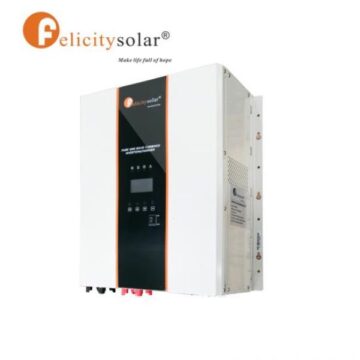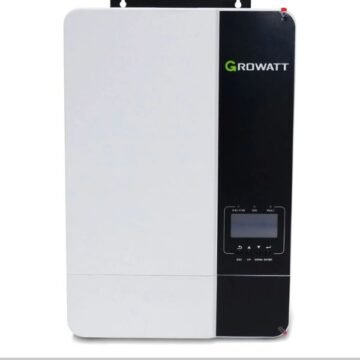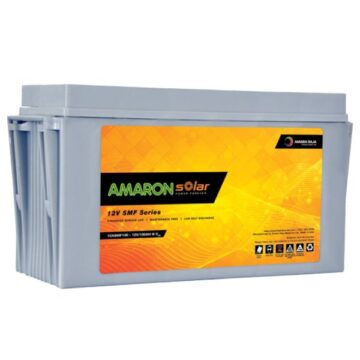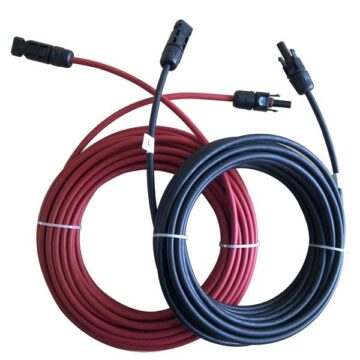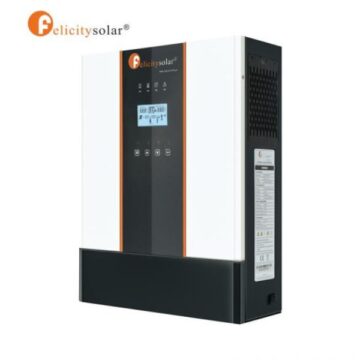Power generation and storage efficiency are critical in the field of solar energy systems. The solar charge controller is an unsung hero in this process. A charge controller, which is frequently disregarded, is a critical component that governs the flow of energy from solar panels to batteries, providing optimal charging, protection, and endurance. In this blog post, we will unpack the complexities of solar charge controllers and shed light on their critical role in properly capturing solar electricity and specifically for solar power applications in Kenya.
What is a charge controller?
A solar charge controller, also known as a solar regulator, serves as a go-between for solar panels and batteries. Its principal function is to regulate the charging process, preventing overcharging and over-discharging, both of which can cause battery damage and energy loss.

Uses of Charge Controller in Kenya
Charge controllers regulate the voltage of the battery bank and the solar panels. They control the charging process to ensure that the batteries receive an optimal charge without exceeding dangerous voltage levels.
Overcharging Batteries: Overcharging batteries can result in electrolyte loss, reduced battery life, and possibly dangerous circumstances. Charge controllers avoid this by stopping charging when the batteries are fully charged.
Load Control: Load control functions are common in charge controllers, allowing them to power devices directly from solar panels during the day and convert to battery power at night or during low sunshine hours.
Temperature Compensation: Some modern charge controllers have temperature sensors that change charging voltage dependent on the temperature of the battery. This compensates for temperature changes in the battery.
Battery Protection: Charge controllers prevent reverse current flow from batteries to solar panels at night or in low-light circumstances. This prevents energy loss and potential panel damage.
Type of Charge Controllers Available in Kenya
PWM (Pulse Width Modulation) controllers modify the voltage provided to the batteries by rapidly switching the output of the solar panel on and off. While they are effective, they are inefficient when compared to newer MPPT controllers.
MPPT controllers (Maximum PowerPoint Tracking) are more modern and efficient. They monitor the solar panels’ highest power point and regulate the voltage and current to maximize energy harvesting, especially in changing sunshine circumstances.
Applications of Charge Controllers in Solar Power Systems
Charge controllers are essential for household solar installations, ensuring that home energy systems run effectively and securely.
Off-Grid Systems: In remote locations without grid access, charge controllers are essential for preserving battery health and supplying steady power.
Commercial and industrial projects: From solar-powered water pumps to telecom towers, charge controllers are essential to a variety of applications, ensuring dependable and effective power management.
Boats and RVs: Charge controllers are crucial for mobile applications, controlling the flow of electricity to batteries and appliances while the vehicle is in motion.
Summary of Use of Charge Controller in Kenya
While solar panels are the main attraction in renewable energy production, solar charge controllers perform unsung but equally important roles. The keystone that ensures effective energy conversion, storage, and utilization are these inconspicuous gadgets. Solar charge controllers serve as the silent enablers, ensuring that every watt of energy is harnessed and utilized properly, paving the way for a cleaner and more efficient future as solar power continues to gather momentum in the shift to sustainable energy sources.
How to order an affordable charge controller in Kenya: Call/Text/Whatsapp us on 0741 163020 or Email us on: info@happsolar.co.ke

